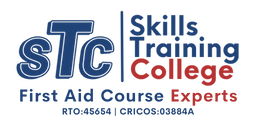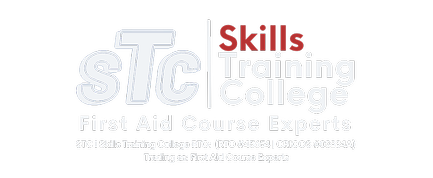Life sometimes throws unexpected bumps our way, and one of those bumps could be a concussion. A concussion happens when you get a hard knock or blow to the head, causing some tricky things to happen inside your brain. It’s important to know what to look for and how to help right away.
In this blog, we’ll talk about concussions – what they are, how you might spot them, and why doing the right thing first (aka learning first aid) is super important. Let’s break it down into simple steps and learn how a little knowledge can go a long way in making things better when someone gets a bump on the head.
What Is a Concussion?
A concussion is a type of mild traumatic brain injury resulting from a forceful impact to the head, face, neck, or body. This impact causes the brain to move rapidly back and forth within the skull, leading to chemical changes in the brain and sometimes damaging brain cells. Contrary to popular belief, concussions don’t always result into lose consciousness; in fact, most concussions (even a serious injury) occur without this symptom.
Concussion Symptoms And Causes
Here are some of the common symptoms of concussion:
Headache: One of the most common symptoms of concussion is a persistent headache. This can range from a dull ache to a throbbing pain and may worsen with physical or mental exertion.
Nausea and Vomiting: Feeling nauseous or actually vomiting is another indication of a concussion. This can be an immediate response to the injury or develop over time.
Slurred Speech: Concussions can affect speech, leading to slurred or slowed verbal communication. If you notice changes in someone’s ability to speak clearly, speech problems could be a sign of a concussion.
Dizziness and Balance Issues: A person with a concussion may experience double or blurry vision, loss of balance, or difficulty maintaining coordination. These symptoms of concussion can make simple tasks challenging.
Fatigue: Unexplained fatigue or a constant feeling of being tired is a common symptom following a concussion. This can be a result of the brain working hard to heal itself.
Sensitivity to Light and Noise: Concussion sufferers often become sensitive to light and noise. Exposure to bright lights or loud sounds may exacerbate their symptoms.
Changes in Sleep Patterns: Concussion symptoms can disrupt normal sleep patterns, leading sleep problems (insomnia) or an increased need for sleep. Changes in sleep can hinder the recovery process and affect overall brain function.
Cognitive Issues: Difficulty concentrating, learning difficulties, memory problems, and general cognitive issues are frequent symptoms of a concussion. These can interfere with daily activities and work.
Mood Changes: Concussions can impact a person’s mood, leading to mood swings, irritability, anxiety, or feelings of sadness. These emotional changes are part of the overall disruption to brain function.
| Symptom | Description | Onset Time |
|---|---|---|
| Headache | Persistent ache to throbbing pain | Immediate to hours |
| Nausea and Vomiting | Feeling sick or actual vomiting | Immediate to hours |
| Slurred Speech | Difficulty in clear verbal expression | Hours to days |
| Dizziness and Balance Issues | Loss of balance, blurry vision | Immediate to hours |
| Fatigue | Unexplained or constant tiredness | Hours to days |
| Sensitivity to Light and Noise | Discomfort from bright lights or loud sounds | Hours to days |
| Changes in Sleep Patterns | Insomnia or increased sleep need | Days |
| Cognitive Issues | Concentration or memory problems | Hours to days |
| Mood Changes | Irritability, anxiety, sadness | Days |
How Long Does a Concussion Last?
The duration of a concussion varies from person to person and depends on the severity of the brain injury. Mild concussions may resolve within a few days to a couple of weeks, while more severe cases such as blow to the head, repeat concussions, or injury from high risk sports can take several weeks or even months. It is crucial to note that returning to normal activities too soon can increase the risk of prolonged symptoms or complications.
What to Do After a Concussion: Concussion First Aid Steps
Following a concussion, providing immediate care is crucial to facilitate a complete recovery process. Follow these first aid steps to know what to do if you have a concussion.
1. Rest
The cornerstone of concussion treatment and other head injuries is complete rest. This includes both physical and cognitive rest. Physical rest involves avoiding activities that could strain the body, while cognitive rest means limiting mental activities that require effort, such as reading, watching TV, or using a computer.
2. Monitor Symptoms
Keep a close eye on symptoms and seek medical attention if they worsen or if new symptoms emerge. Monitoring symptoms is vital for assessing progress and adjusting the treatment plan as needed.
3. Gradual Return to Activities
As symptoms improve, individuals can gradually resume normal activities. It’s crucial to progress slowly and pay attention to any signs and symptoms of recurrence. If brain injury symptoms reappear, it may be necessary to scale back activities temporarily.
4. Consult a Healthcare Professional
Seeking medical attention is essential after a head injury. A health care provider can assess the severity of the concussion, recommend appropriate treatment, and provide guidance on the recovery process.
5. Follow Up Care
Adhering to the prescribed treatment plan for brain injury is crucial for a successful recovery. This may include rest, medication, and gradual reintroduction of activities. Ignoring treatment recommendations can prolong symptoms and increase the risk of complications such as severe headaches, lose of consciousness, fatal brain swelling, or post concussive syndrome.
Concussion In Children
Childhood is a time of boundless energy and exploration, but it also carries the risk of injuries, including pediatric concussions.

In a traumatic brain injury involving children, a child may exhibit signs and symptoms such as headaches, nausea, dizziness, slurred speech, or changes in behavior after a head injury. However, it’s essential to note that young children, especially, may struggle to express their discomfort verbally. Parents and caregivers should be vigilant for any alterations in mood, sleep patterns, or physical coordination.
In the event of a suspected concussion, child care first aid becomes paramount. The immediate steps include ensuring the child’s safety, keeping them calm, and seeking medical attention promptly. Rest is crucial during the early stages of concussion recovery, both physically and cognitively. Parents should closely monitor the child for ongoing symptoms. Gradually reintroduce physical activity as advised by healthcare professionals to avoid getting symptoms worsen. Seek medical care immediately if you observe other signs in your child.
Key Takeaway
As we emphasize the importance of concussion first aid, we also invite you to stay informed and proactive. Regularly check our calendar for upcoming training, including CPR courses and refreshers. Our courses are designed to equip you with the knowledge and skills needed to respond confidently and effectively when it comes to head injuries.
To further facilitate safety initiatives, consider reaching out to us through our corporate booking page. Whether you’re a school, daycare, workplace, or any organisation, our tailored courses can be instrumental in creating a safer environment for everyone.
Remember, in the realm of safety, knowledge is empowerment. Let’s work together to ensure a secure and nurturing environment for all.

